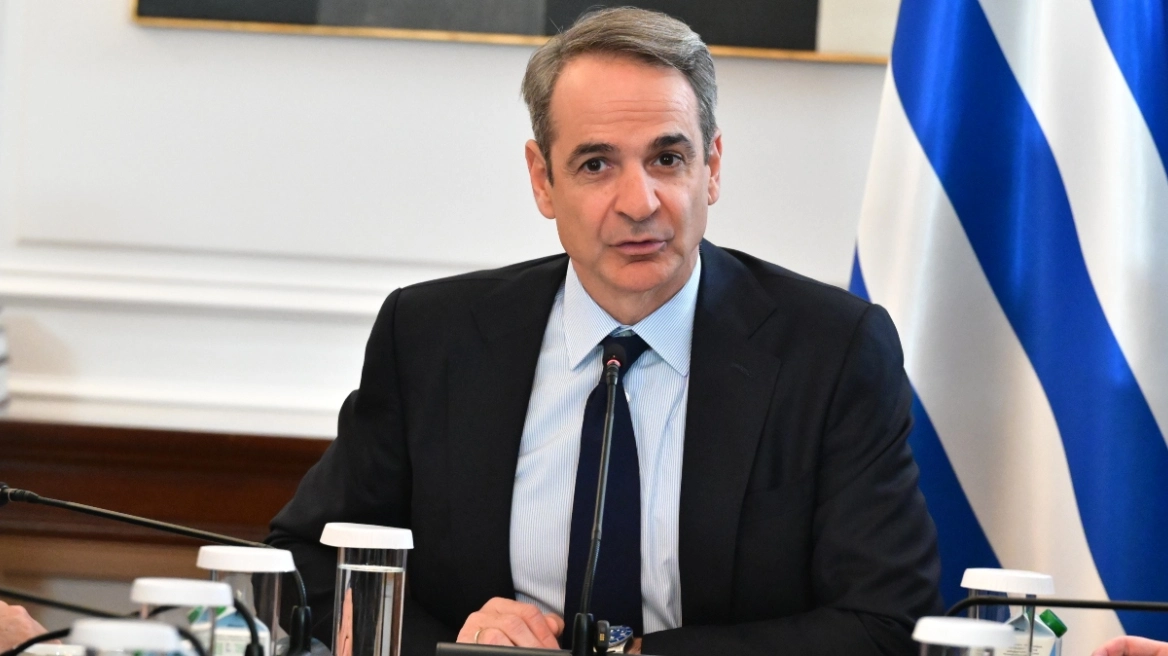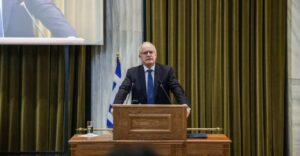The new developments shaping the political landscape, with PASOK in the role of the main opposition, have not caught the Maximos Mansion off guard, as Kyriakos Mitsotakis has long recognized Nikos Androulakis’s party as the de facto main opposition.
For the Prime Minister, however, the issue at stake and the challenge for the government itself remain the effectiveness of the implemented policies. This is why he is “exorcising” internal unrest within New Democracy following Samaras’s expulsion through targeted visits both within and outside Attica, many of which are linked to significant local projects.
Yesterday, the Prime Minister was in Naxos during the celebration of the patron saint Panagia Chrysopolitissa, walking through the streets of Chora. Later, he attended a ceremony for the signing related to the establishment of the Decarbonization Fund. With a “dowry” of €1.6 billion, the fund is expected to be a crucial tool for powering the islands through renewable energy sources in the near future. Against the backdrop of the installation of wind turbines, the Prime Minister responded to local communities and political forces raising objections.
“It is not patriotic to import natural gas from abroad, to import oil from abroad, when we can exploit domestic energy sources that God has so generously given us,” Mr. Mitsotakis remarked pointedly.
The Prime Minister will continue the strategy of visits and targeted tours. Already marked on the government calendar is next Friday, when Mr. Mitsotakis will be in Thessaloniki to tour the new metro facilities, which are set to “raise the curtain” next Saturday. Earlier that same day, Mr. Mitsotakis will be in Pieria for the presentation of the Development Plan for Central Macedonia, while on Saturday, many ministers are expected to be present in Thessaloniki for the presentation of the emblematic infrastructure project.
Permanent tax cuts for the middle class
At the same time, insisting on the strategy of strengthening disposable income, Mr. Mitsotakis, speaking yesterday at an event on tax compliance, announced permanent tax cuts starting in 2026, pointing to the income tax brackets affecting the middle class.
“If we have a steady overperformance from structural measures, yes, we can further reduce tax rates. I was very cautious, therefore, which is why I mentioned 2026 and 2027, because it is very important for these structural measures to also demonstrate to the European Union that they yield permanent results,” the Prime Minister emphasized.
Unity is not served by disciplinary measures
The internal party unrest, however, does not end here and realistically will have a horizon extending to the Presidential election early next year. Today, in the wake of Samaras’s expulsion, Kostas Karamanlis takes the stage at the presentation of journalist Giorgos Charvalias’s book “Jawohl.”
Mr. Karamanlis is expected, among other things, to point out that in an environment of broader unrest, Greece requires unity, consensus, and dialogue. “However, unity is not served by disciplinary measures,” Mr. Karamanlis is expected to note. His associates underline that his speech will be moderate in tone, though particular interest is anticipated in his upcoming intervention on national issues on December 8, during an event marking the 80th anniversary of the Karpathos uprising at the Old Parliament.
More broadly, Mr. Karamanlis will address Germany’s role in Europe’s development, as well as the crises and the Memoranda. He will speak on the woke agenda and its impact on election outcomes in Europe and the USA, while regarding migration, he is expected to stress that the policies being implemented do not seem to yield results. At the same time, he will note that Germany, which opened the door, is now clumsily trying to close it.
The event will also feature speeches from, among others, Achaia MP Andreas Katsaniotis, who is a close political ally of Antonis Samaras. Without delving deeply into internal party matters and without raising the issue of his remaining in the parliamentary group, Mr. Katsaniotis is expected to highlight that the same roots that produced those who argued that the Memoranda had a positive impact also produce those advocating appeasement with Turkey.
The “jab” is clear, though Mr. Katsaniotis tells interlocutors that the government reiterates in every way that it will not deviate from the national line. He himself was also present during Minister Gerapetritis’s recent briefing to the “blue” MPs of the Foreign Affairs and Defense Committee.
Ask me anything
Explore related questions





